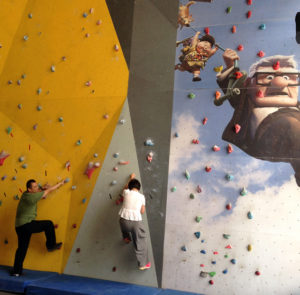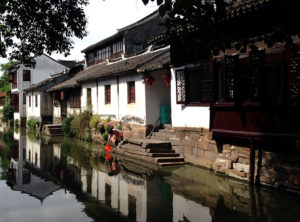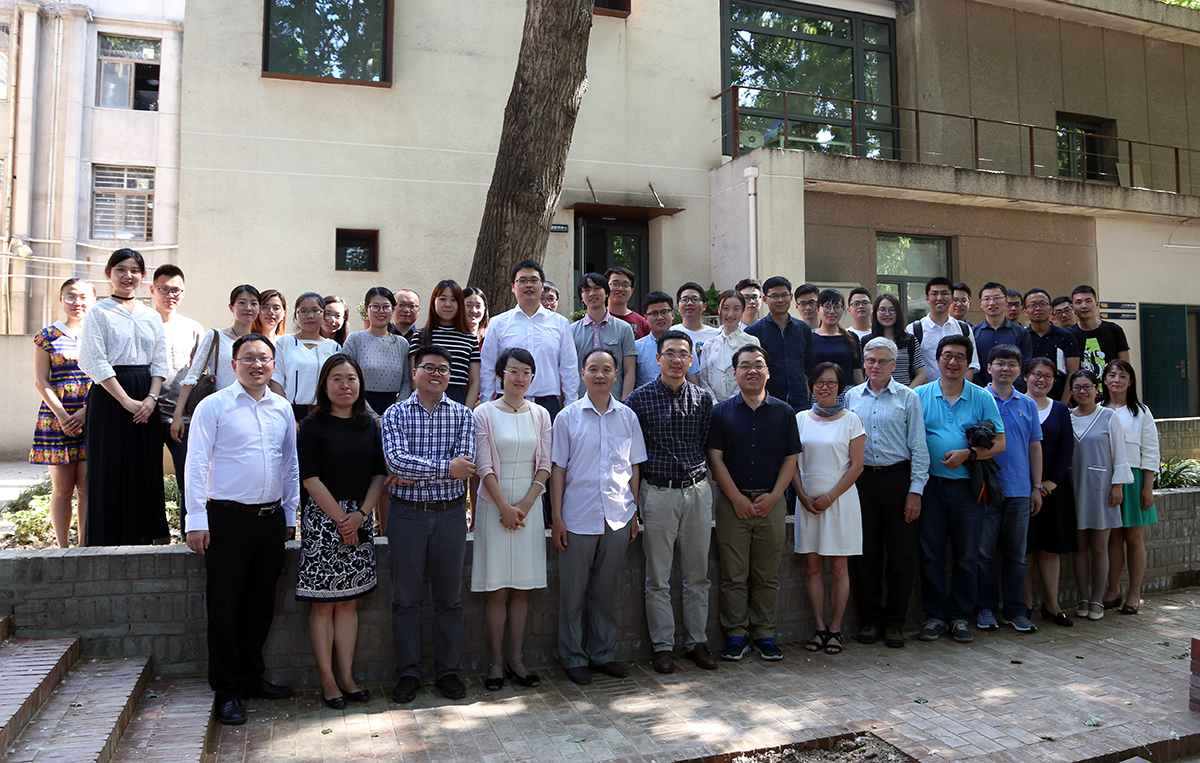CBE Director Edward Arens and Research Specialist Hui Zhang made a visit to China this summer to explore new research opportunities with several leading universities and a developer of residential towers. The trip was organized by former CBE visiting scholars who made important contributions to CBE’s work, who are now developing new research laboratories and programs China, leading research of relevance to CBE and its industry partners.
The organizers include Yongchao Zhai, who conducted a series of important laboratory studies on comfort with ceiling fans during his five years at UC Berkeley, and co-authored numerous papers with us. Yongchao is now a professor at Xi’an University of Architecture and Technology (XAUAT), where he leads research on thermal comfort, for example, a study on the thermal comfort effects of standing desks, which have become ubiquitous in many workplaces.
Also leading the visit was Xiang Zhou, who supported a CBE field study of personal comfort systems. As a professor at Tongji University in Shanghai, Xiang has built an advanced radiant test chamber, in which the walls, ceiling and floor are all fitted out with hydronic tubing to enable advanced testing of radiant systems. As part of the visit, Ed and Hui participated in symposia on thermal comfort research at both universities in May, giving lectures and discussing thesis topics with graduate students. As part of the event in Xi’an, Zhang Hui was named an honorary professor at XAUAT.

Xiaorui Lin and Zhang Hui on the Olympic rock-climbing by Vanke.
The visit also included time with Xiaorui Lin, who was also a previous CBE visiting scholar, and is the senior manager with Vanke, one of the largest residential real estate developers in China. Xiaorui invited Ed and Hui to tour impressive Vanke developments in Changsha, including Vanke Village, offices, and athletic facilities open to the public, with an Olympic rock-climbing wall. They also toured a field study of fan and personal comfort systems being conducted in Vanke’s offices.
Prof. Liu Yang, the Head of Architecture at XAUAT, was also a former visiting scholar at CBE. She organized a reunion of twenty CBE-Chinese visiting scholar alumni. All of them spoke warmly about their experiences at Berkeley, and how it had affected their subsequent careers. Many of them are rising stars in Chinese academia, enjoying official recognition that efficient thermal comfort is key to their nation’s climate action goals. The enormous size of the Chinese building sector and its rate of growth, give global significance to what they are doing. This work validates and extends the work we do at CBE.
In addition to the professional activities, the trip included visits to important historical and natural areas. As Ed is enthusiastic about forest flora (one of his degrees is in forestry from Yale), Xiaorui arranged a trip with two botanists to a spectacular mountainous nature preserve between Hunan and Guangzhou provinces. They also visited Zhou Zhuang, a water village in Shanghai, with bridges dating to the 1500s during the Ming dynasty. Some areas show remarkable similarities to the urban form of Venice. Tourists tour through the canals in boats called sampans (instead of gondolas), and the gondoliers are all women.

A typical canal house in Zhou Zhuang, China.
Reflecting on the meeting, including with the CBE alumni, Ed notes, “It’s inspiring to see many young students and scholars in China who are dedicating their research in the area of efficient thermal comfort. There were about 80 people in the workshop in Xian, the largest comfort-community turn-out in one workshop that we had been to.” The new facilities that these alumni lead are well staffed and funded, and we expect that CBE researchers and industry partners to bridge the geographical divide to collaborate on important topics of interest.
Featured image: Students and CBE alumni in the Xi’an “Advances in Thermal Comfort Research” Symposium

